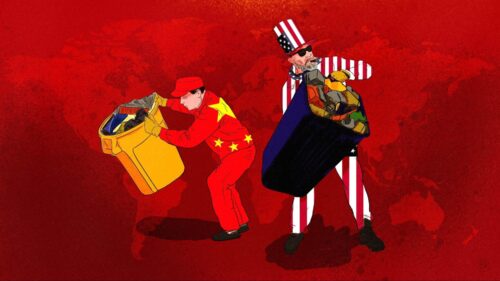Hong Kong free speech: ‘The red line has been clearly drawn’

Last Friday, I said that press freedom in Hong Kong died, with the expulsion of Financial Times journalist Victor Mallet, apparently in retribution for moderating a discussion with pro-independence activist Andy Chan (陈浩天 Chén Hàotiān) at the Foreign Correspondents’ Club of Hong Kong (see the HKFP report or my analysis behind the The China Project Access paywall).
The China Daily’s Hong Kong edition has now made it clear that this is the new normal, with an editorial titled Everyone in HK must heed red line:
Hong Kong Journalists Association chairman Chris Yeung Kin-hing [杨健兴 Yáng Jiànxìng] complained of a red line that journalists are not allowed to cross, and that the red line has not been clearly announced. He is right. There is indeed a red line. President Xi Jinping made it very clear in Hong Kong last year: “Any attempt to endanger China’s sovereignty and security, challenge the power of the central government or use Hong Kong to carry out infiltration and sabotage activities against the mainland is an act that crosses the red line, and is absolutely impermissible.” The red line has been clearly drawn. It is there not only for Hong Kong residents to observe, but also for expatriates residing or working here.
Foreign correspondents enjoy all the freedoms everybody else does here, but they are also subject to the legal restraints everybody else has to be subject to. Whoever crosses that red line has to bear the consequences.
Another sign of the blurring of “one country, two systems” (一国两制 yīguóliǎngzhì), which notionally lets Hong Kong retain a high degree of autonomy: “The Chinese foreign ministry in Hong Kong has told foreign consulates to ‘refrain’ from attending Taiwan National Day events in the city,” reports HKFP.






